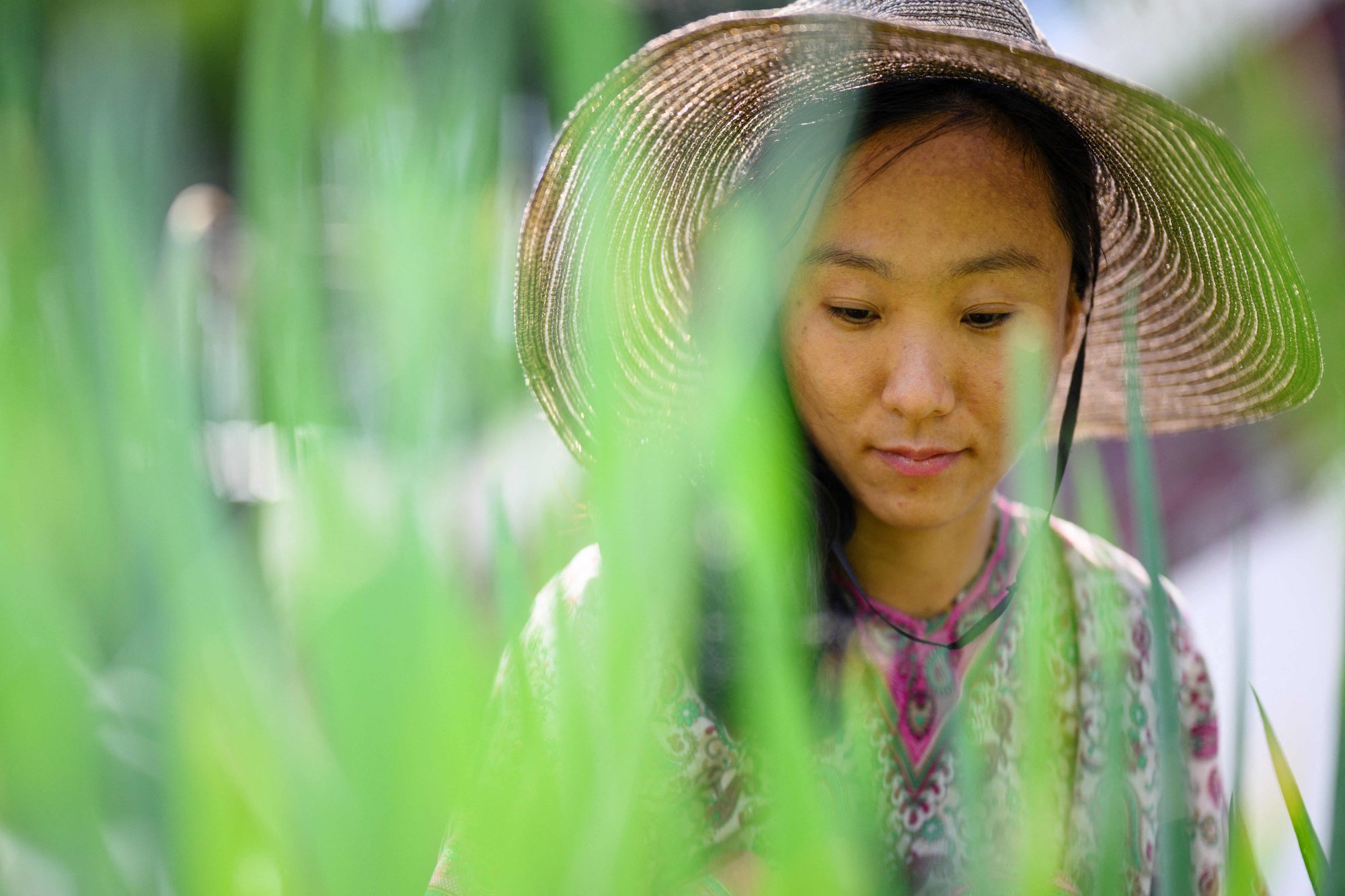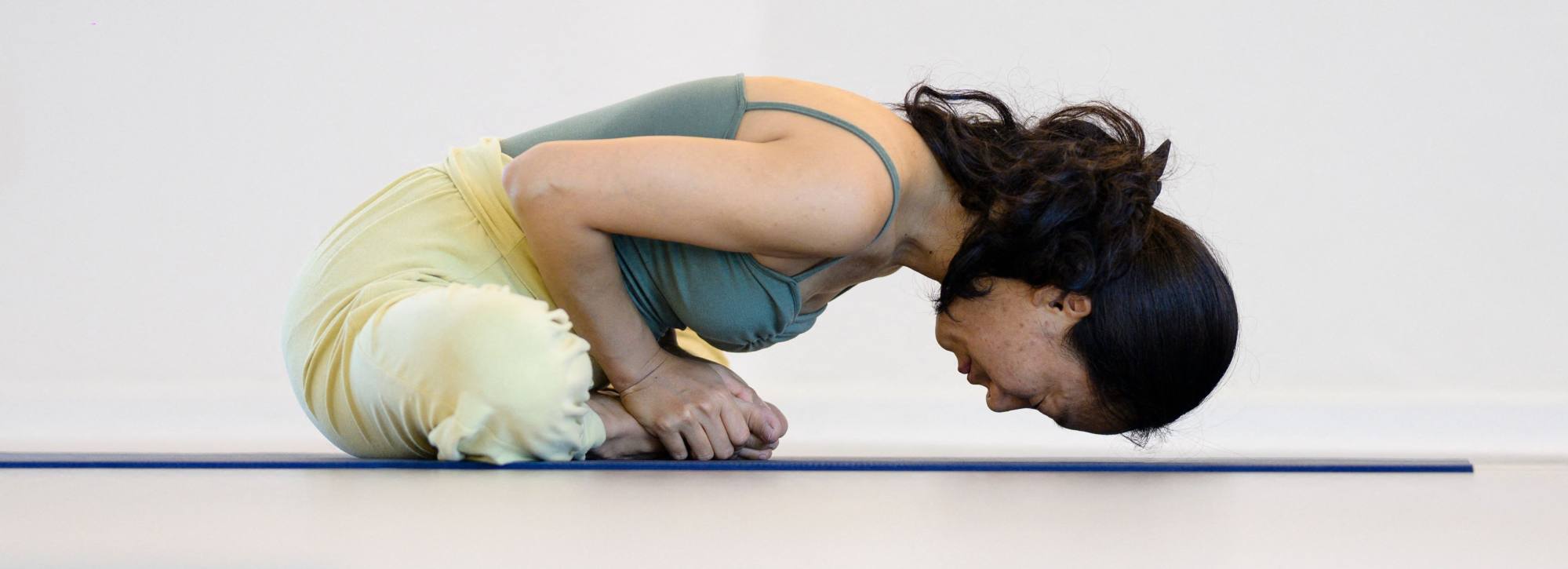‘Selfish’? South Korean woman who promotes unmarried, childless life becomes YouTube star
Seen Aromi is happy and carefree but her message has drawn backlash in South Korea, which has the world’s lowest birth rate
Wellness
+ FOLLOW
.png?itok=arIb17P0)
Agence France-Presse
+ FOLLOW
Published: 7:15am, 8 Jul 2024
Why you can trust SCMP
Listen to this article
South Korea has declared its super-low birth rate a “national emergency” and poured billions into encouraging citizens to marry and reproduce, but one YouTuber has found happiness and success promoting the opposite ideal.
At her home in rural South Korea, Seen Aromi practises yoga, sleeps in as long as she wants and encourages her more than 200,000 YouTube followers to not feel afraid, ashamed or guilty about being single.
“Not getting married is my greatest achievement,” says 37-year-old Seen, adding that she had never considered becoming a “good” wife or mother as the ultimate purpose of her life.
“They say it’s a ‘disaster’ that women are not having children in South Korea. But when I think about the potential downsides of not having children, [for me] there is nothing.”
 Aromi (centre) works out with her personal trainer at a gym in Gyeonggi province. Photo: AFP
Aromi (centre) works out with her personal trainer at a gym in Gyeonggi province. Photo: AFPSeen wrote about the joy she found in opting out of society’s expectations and embracing solo living in her book I Can’t Help but Live Well on My Own, which has become a surprise hit.
It briefly topped a major bestseller chart in South Korea, with an enthusiastic response not only from other single women in their 30s but also from an older generation, including people who had been widowed or divorced.
She enthused in the book about having “the freedom to be as lazy as I want” and not being criticised for it.
“While some people might marry because they dislike being alone, others choose not to meet anyone simply because they enjoy lying around,” she wrote.
EVERY FRIDAY
Discover news and insights on women trailblazers, social issues and gender diversity in Asia
By submitting, you consent to receiving marketing emails from SCMP. If you don't want these, tick here
GET OUR NEWSLETTER
By registering, you agree to ourT&CandPrivacy Policy
With the world’s lowest birth rate and a rapidly ageing population, South Korea faces a looming demographic crisis in the country.
Experts have suggested that many young Koreans opt out of marriage and child-rearing at least in part for economic reasons, pointing to stagnant growth, sky-high home prices in the capital Seoul and intense competition for well-paying jobs.
When I said I was happy, [some people] strongly denied it. They seemed to think there’s no way that could be trueSeen Aromi
Others say broader cultural issues are at play. The country remains socially conservative, single parenthood is frowned upon, same-sex marriage is not recognised, and married women often end up leaving the workforce – data shows they spend 3.5 times longer a day on household chores and childcare than male spouses.
“Traditionally defined gender role expectations in the family domain as well as tension between genders are definitely related to the current low birth rate,” says Hyeyoung Woo, a sociology professor at Portland State University, in the US state of Oregon.
For Seen, letting go of the traditional South Korean trappings of success – a Seoul apartment, a high-paying job, a loving spouse – has allowed her to find genuine happiness.
“I’ve never worked for a big conglomerate, do not live in the city and never been married,” she says.
Her life in Seoul was miserable, Seen says, as she had to suffer through an exhausting commute and a stressful, abusive workplace.
 Aromi in her garden at her home in Gyeonggi province. Photo: AFP
Aromi in her garden at her home in Gyeonggi province. Photo: AFPAfter living overseas for years, working random jobs – from hotel housekeeper to packing meat in a chicken factory – and posting videos about her life online, she returned to South Korea and settled in a rural town.
She renovated an old family house that used to belong to her late grandfather, and her YouTube channel – which deals with everything from living alone to travelling, fitness and yoga – grew in popularity, eventually picking up more than 200,000 subscribers.
A single YouTube video now earns her five times more than she used to get monthly as a salaried worker in Seoul, and she can “live a much more autonomous life – which is extremely satisfying”, she says.
But her social media posts about her joyful single life have also attracted backlash online, with critics claiming that in reality, Seen must be lonely, or calling her “selfish” for not getting married.
“Married people often post photos of their children and share happy images of their married life, and no one really criticises that,” Seen says.
“But when I said I was happy, [some people] strongly denied it. They seemed to think there’s no way that could be true.”
 Aromi practises yoga at a studio in Gyeonggi province. Photo: AFP
Aromi practises yoga at a studio in Gyeonggi province. Photo: AFPSeen says she has been in several fulfilling relationships, but her autonomy and adventurous lifestyle are her top priority, over starting a family.
The fact that her book has become a runaway success proves that you “can still be the best at something even though you live a non-mainstream life”, she says.
Most couples who have children do it because it will make them happy, not out of concern for humanity’s future – and people who live alone have also made choices aimed at happiness, which should be respected, she says.
She is proud of her contributions to the world. While others were having children, “I gave birth to two YouTube channels and a book,” she says.
No comments:
Post a Comment